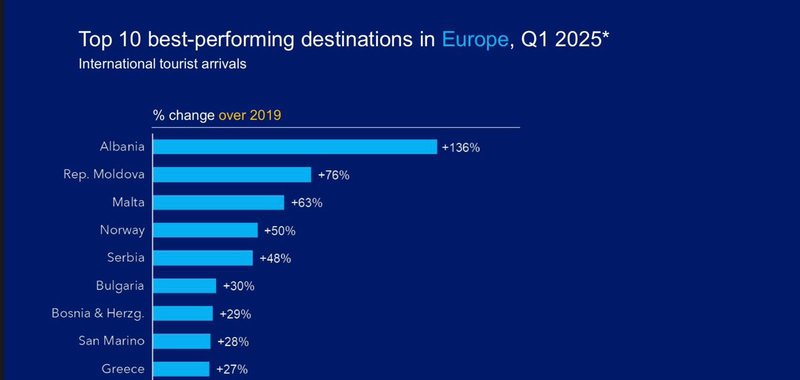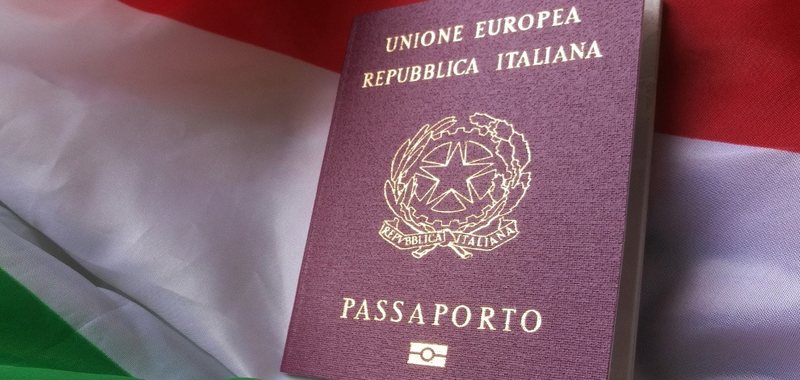Which country in Europe grants the most citizenship?

Italians have been voting over the past two days on whether to reduce residency requirements for citizenship for non-EU immigrants from 10 years to five, but misinformation has been circulating around the vote. The country's Infrastructure and Transport Minister, Matteo Salvini, and others have claimed that Italy is the European country that grants the most citizenship applications, for example.
"The most dangerous (referendum) is one that would extend citizenship to hundreds of thousands of people indiscriminately, with Italy being the number one European country in terms of granting citizenship each year," he said in May. However, it is not true that Italy approves more citizenship applications year after year, and we can verify this by looking at the latest figures from Eurostat.
They show that in 2023, Spain granted the most citizenships, reaching more than 240,000. This accounts for 22.9% of the total number of citizenships granted in the EU. Italy came in second with 214,000, then Germany with 200,000, France with 97,000 and Sweden with 68,000. The United Kingdom granted 202,000 citizenships in 2023, according to British government figures.
The ranking changes when the number of citizenships granted is analyzed in relation to a country's population. In this case, Luxembourg ranked first in the EU in 2023, with 8.8 citizenships per thousand inhabitants, followed by Sweden (6.4), Spain (5), Belgium (4.7) and Italy (3.6), which rounded out the top five. Slovakia, Bulgaria and Lithuania grant the fewest citizenships per 1,000 inhabitants, according to Eurostat, all below 0.5.
Eurostat also calculates the naturalization rate for each country. It compares the number of citizenships granted to the resident non-national population. According to this metric, the highest naturalization rate was in Sweden (7.9), followed by Romania (5.9) and Italy (4.1).
"In 2023, in the EU as a whole, 2.6 ordinary residents per 100 resident non-national citizens acquired citizenship ," Eurostat said.
It is true, then, that Italy consistently ranks among the highest in terms of the total number of citizenships granted and has granted more in some years, such as in 2022 and 2020. In the former, Italy again naturalized around 214,000 people, and in the latter, around 132,000 people were granted citizenship.
However, as things stand and as the referendum results come in, Italy has some of the strictest citizenship requirements in Europe, with immigrants having to live there for 10 years before officially becoming Italian.
Others, such as Switzerland, Lithuania and Slovenia, have similar requirements, while a significant number of European countries require immigrants to live there for only five years. For example, Finland, France, Ireland and Portugal. While Italy has been considering lowering its naturalization requirements, several countries are considering or have already taken the other route.
The UK government has announced it intends to introduce new rules that increase the time an immigrant must live in the country before applying for citizenship from five to 10 years, unless they can demonstrate " a genuine and lasting contribution to the economy and society" . Meanwhile, Belgium recently increased the cost of applying for citizenship from €150 to €1,000.

Strong fall of the US Dollar - How has this week started for the major currencies?
The US dollar has started the week negatively, suffering a sharp drop in value over the weekend, being bought this morning at 84.8 lek and being sold at 86.1......

Albania, first in Europe for tourist flows - Kumbaro: 136% increase. Confirms the success of the Albanian tourism model
Even in the first quarter of 2025, Albania ranked first in Europe in terms of international tourist arrivals. According to data from the United Nations......

US tariffs endanger fishing industry - UN report warns of consequences of global trade tensions
The imposition of a 10 percent tariff by the United States on almost all fishery imports poses risks to global trade in the sector, according to a United......

Italians vote to ease citizenship requirements - Referendum includes questions on labor market changes
Italians will start voting on Sunday in a two-day referendum to decide whether to ease citizenship laws and overturn a decade of labor market liberalization.......

Eid al-Adha increased meat consumption - Sellers: We offered cheaper prices compared to previous years
Eid al-Adha, one of the most important holidays of the Islamic faith, brings believers together in prayer, reflection, and solidarity. With sacrifice as a......

EU, 13 critical materials projects outside the bloc - New initiatives aim to reduce dependence on Chinese exports
The European Union announced 13 new raw materials projects outside the bloc to boost its supplies of critical metals and minerals. The EU aims to stay......

Armed Forces Deployment Plan - In the Assembly, the draft law on their command and the location of the exercises
The precise definition of the powers and authorities of the direction and command of the Armed Forces, in times of peace and war, is the main goal of the......

AI advertising spending is booming - expected to grow to $26 billion by 2029
Spending on search engine advertising, powered by artificial intelligence, is expected to grow to nearly $26 billion in the U.S. by 2029. That figure is......


















